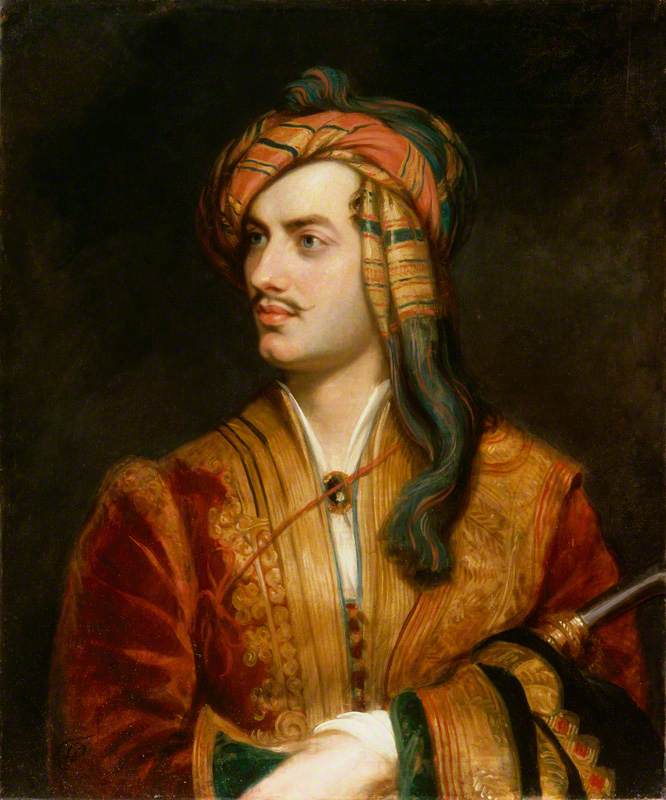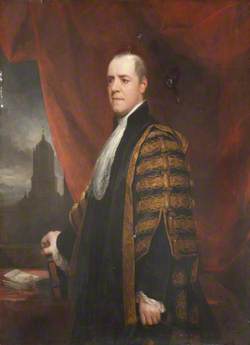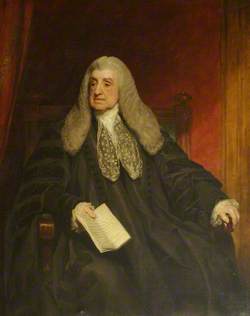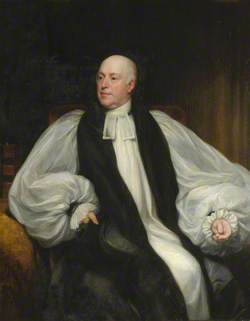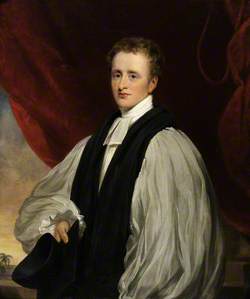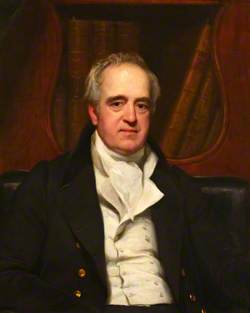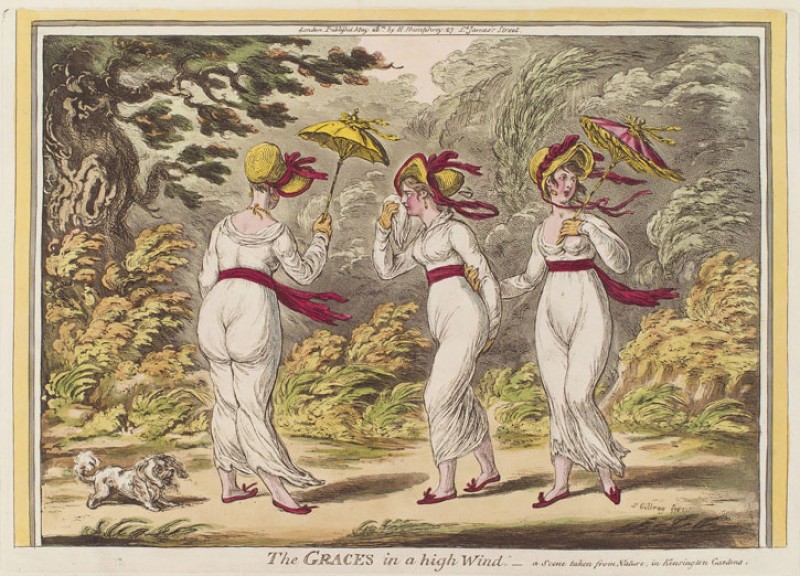How you can use this image
This image can be used for non-commercial research or private study purposes, and other UK exceptions to copyright permitted to users based in the United Kingdom under the Copyright, Designs and Patents Act 1988, as amended and revised. Any other type of use will need to be cleared with the rights holder(s).
Review the copyright credit lines that are located underneath the image, as these indicate who manages the copyright (©) within the artwork, and the photographic rights within the image.
The collection that owns the artwork may have more information on their own website about permitted uses and image licensing options.
Review our guidance pages which explain how you can reuse images, how to credit an image and how to find images in the public domain or with a Creative Commons licence available.
Notes
Add or edit a note on this artwork that only you can see. You can find notes again by going to the ‘Notes’ section of your account.
The poet Byron was famous for his swaggering good looks and his brilliant, reckless personality. The publication of Childe Harold's Pilgrimage (1812) made him famous overnight. He was also a scathing critic and his Don Juan (1819–1824) is the ultimate satire of Regency society. He lived abroad from 1816 in self-imposed exile and became an attraction for English tourists. A lifelong supporter of liberal causes, he joined the Greeks in their fight against Ottoman rule but died of fever in Missolonghi in 1824. Byron sat to Phillips in 1813 wearing the Albanian costume which he had bought four years earlier; the costume is now at Bowood in Wiltshire. The finished portrait met with a mixed reception but the essayist and poet Leigh Hunt thought it 'by far the best that has appeared; I mean the best of him at his best time of life, and the most like him in features as well as expression'.
Title
George Gordon Byron, 6th Baron Byron
Date
c.1835
Medium
oil on canvas
Measurements
H 76.5 x W 63.9 cm
Accession number
142
Acquisition method
Purchased, 1862
Work type
Painting
